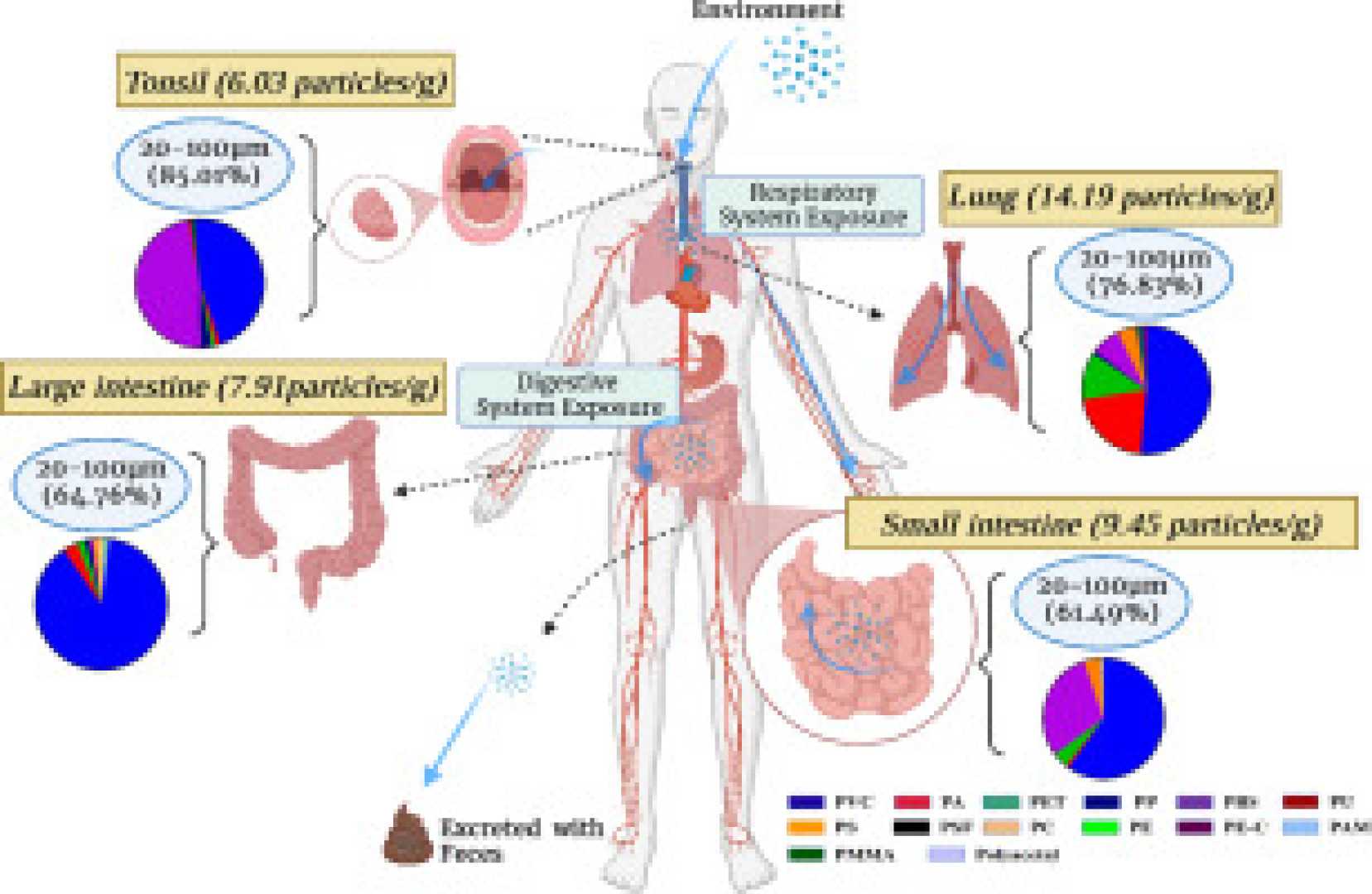Health
Microplastics Linked to Lung and Colon Cancer in New Study

Microplastics, tiny plastic particles found in nearly every corner of the planet, have now been linked to lung and colon cancer in a groundbreaking study. Researchers at the University of California, San Francisco (UCSF) analyzed over 3,000 studies to uncover the alarming health risks posed by these pervasive pollutants. The findings, published in the journal Environmental Science and Technology, highlight the urgent need to address plastic pollution and its far-reaching consequences on human health.
Microplastics, defined as particles smaller than 5 millimeters, are shed from sources like tires, plastic waste, and industrial processes. These particles become airborne and are inhaled or ingested, embedding themselves in human tissues. The study found that microplastics can penetrate deep into lung tissues, causing chronic inflammation and oxidative stress, which are key factors in cancer development. Ingested microplastics also disrupt the gut microbiome, increasing the risk of colon cancer.
“These microplastics are particulate matter air pollution, and we know this type of air pollution is harmful,” said Tracey J. Woodruff, PhD, MPH, a professor at UCSF. The study also identified chemicals like bisphenol A and phthalates, commonly found in plastics, as contributors to endocrine disruption and tumor growth.
Globally, nearly 460 million metric tons of plastic are produced annually, a figure expected to double by 2050. With microplastics detected in human organs, including the heart, brain, and even the placenta, the health implications are vast. The study underscores the need for improved recycling methods, the elimination of single-use plastics, and increased public awareness to combat this growing crisis.
Individuals can take steps to reduce exposure by wearing masks in polluted areas and minimizing plastic consumption. However, experts emphasize that systemic changes are crucial to addressing the root causes of microplastic pollution and protecting public health.












